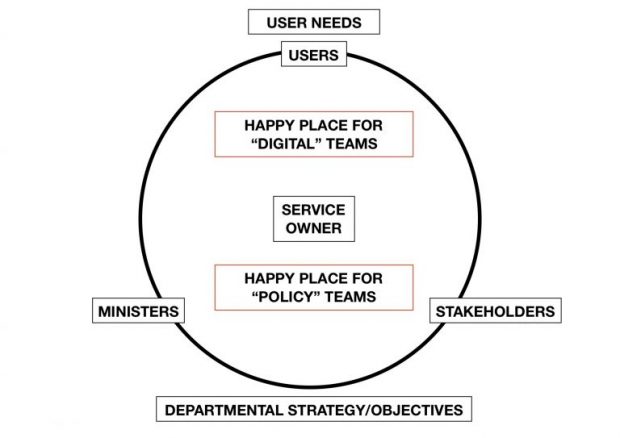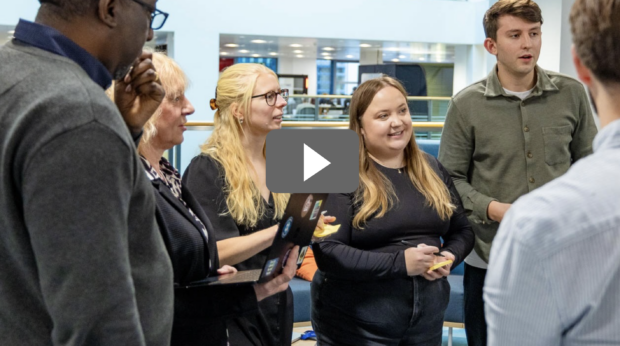
It might seem like a long time since the Government Digital Strategy first described “a new role crucial for helping create digital services so good that people choose to use them” – the role now called Service Owner. For some Departments, the idea of an empowered Service Owner responsible for the end-to-end service is already the norm.
The Ministry of Housing, Communities and Local Government (MHCLG) is a Department without many transactional services. Find an Energy Performance Certificate was one of the first services to go for an alpha assessment at GDS. This service allows citizen users to search for an energy performance certificate (which you need to sell or rent a property) and assessor users to lodge new certificates. We’re building a new service to replace the one currently linked from GOV.UK.
When establishing the team to work on our service, we knew it would be important to define what the role of Service Owner meant to us. Our Department is not only new to digital, but like all departments, it has its own ways of working. We needed to invent the role for MHCLG, but we didn’t need to invent it for government. We knew there were lots of Service Owners already working in other Departments.
That meant we could go and speak to some of them.
One team, one dream
Something we found helpful was the blog post Rachel Hope has written about the Service Owner role in the Department of Education. Rachel also gave us some of her valuable time, which is usually spent empowering her team to create great services for teachers.
When we spoke to Rachel, it was clear her role can’t be classified as mostly digital or mostly policy: she has real accountability on both sides. Having well-integrated multidisciplinary teams where policy and technical work interlock (rather than running in parallel) is something we are already exploring because of our Digital Land team.
Rachel neatly described the benefit of having an empowered Service Owner, as opposed to the traditional decision-making committee our department is more used to. “The conversation about the pros and cons still happens, but it happens in my head.” Instead of every decision requiring planning a meeting, preparing papers and arguing over details, one person investigates the dilemma, takes advice as needed, and decides on the next step. Rachel explained that when she doesn’t have the detailed knowledge herself, she turns to her team members’ expertise and they honestly and openly advise her on how to make the service better, but she makes the final decision. It’s frictionless and the accountability is simple.
Service community
With the Streetworks team in the Department for Transport (DfT), we talked about the common pitfalls of large digital projects. We also talked about the skills the Service Owner needs to avoid them: firm prioritisation, weighing up different needs, stakeholder relationship management and obtaining and balancing the budget.
Crucial elements for success for this team were a governance structure and clear lines to different experts in an ‘advisory community’ outside the core team. Making it the Service Owner’s job to manage these things frees up the team’s time to get on with the build.
The team at DfT had a different set-up to our team with regards to the number of permanent civil servants. It’s important to consider varying the model depending on this. Some commercial and strategic decisions that fall to the MHCLG Product Manager were, in this case, part of the Service Owner’s role.
Passion
We often talk about how important it is to “care deeply about users”. A Service Owner has to do this, but they also have to “care deeply about the service”. They must have the drive to win over the right people and secure the right resources for the team to deliver the idea. They need to do the behind the scenes work and influence those higher up the ladder. If they aren’t passionate about the idea of getting the service to be outstanding, they probably won’t be convincing at this.
That doesn’t mean dedication to ‘the tool we currently use to deliver the service’, it means the idea of the service itself. That way, the Service Owner is always ready to pivot to the best way of getting the right outcomes and doesn’t cling on to old tools or processes.
Work for us?
If this sounds appealing to you, you’ll be pleased to know that we are currently recruiting a Service Owner. Take a look! (Or if you also need a Service Owner, do reuse our job description elsewhere).


